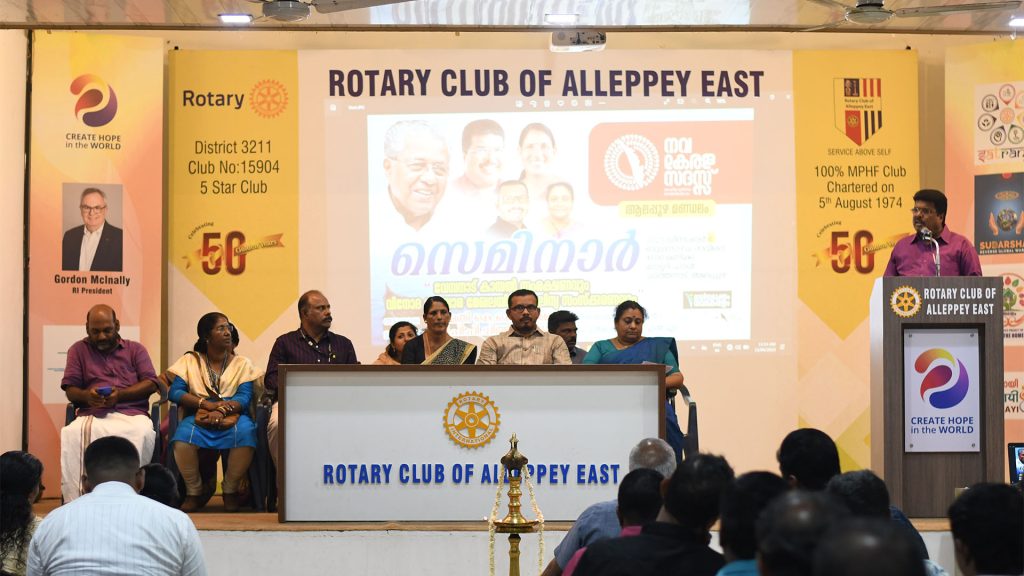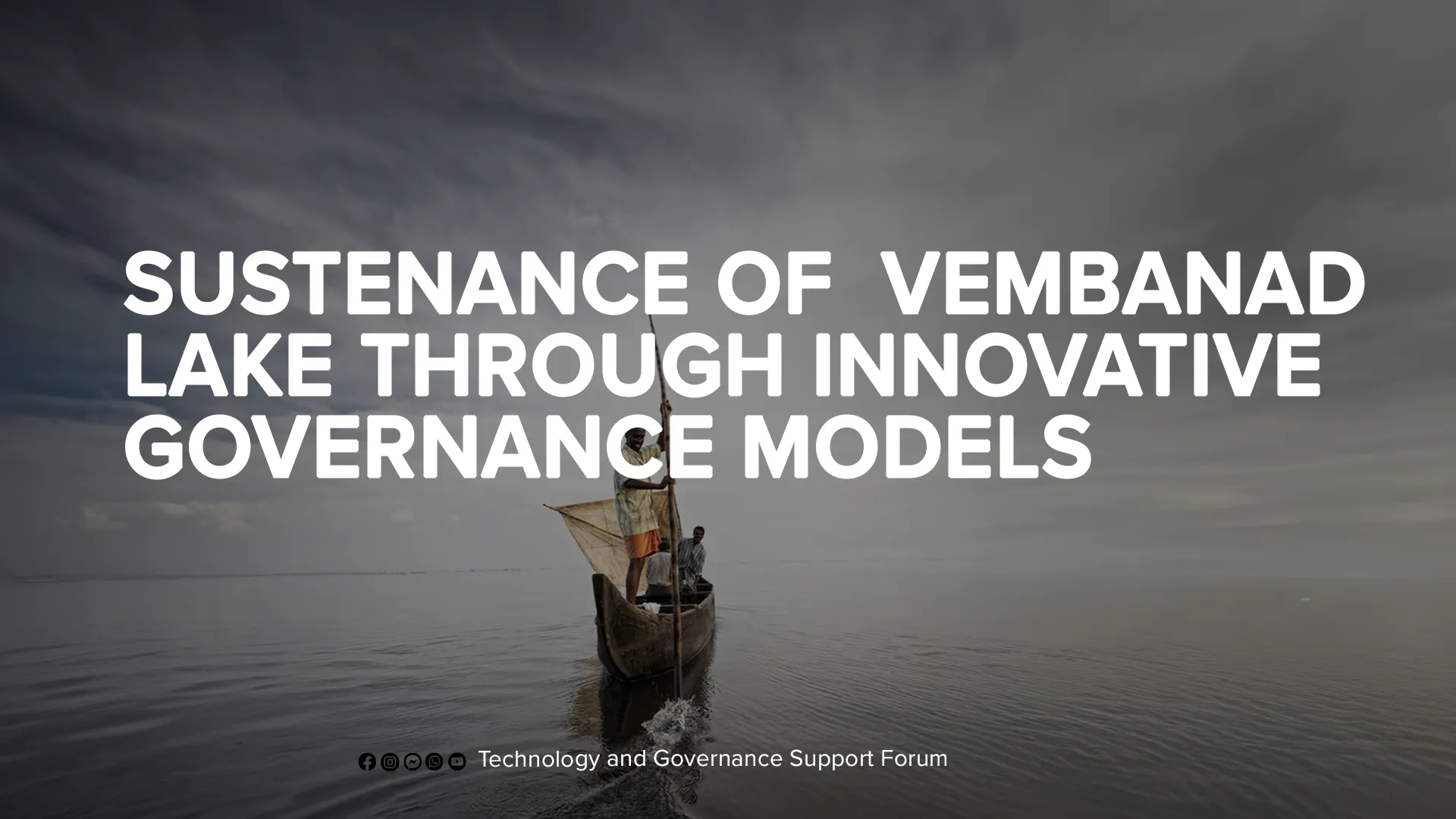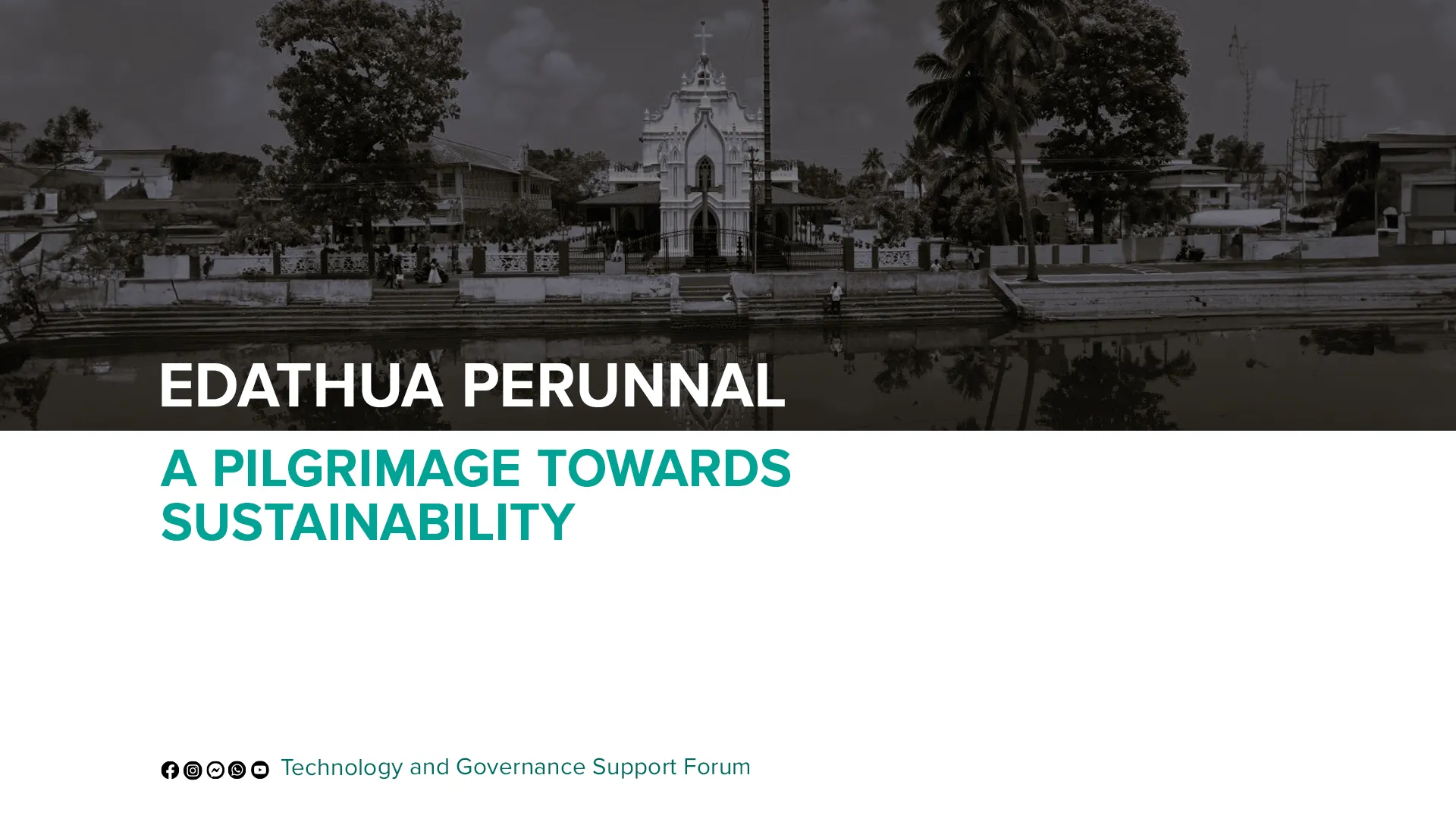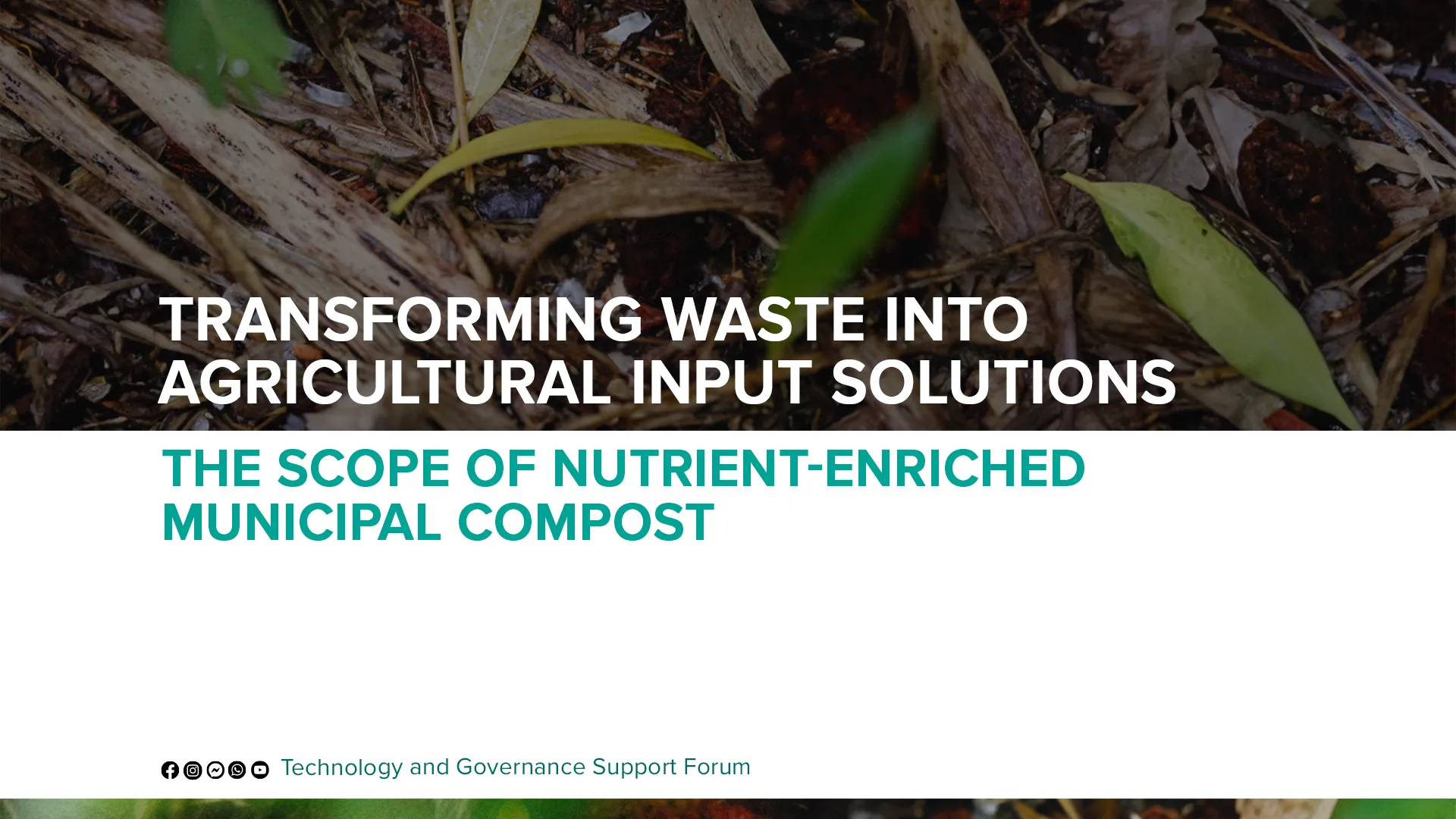Navigating Sustainability: Insights from the Waste Management Seminar in Alappuzha's Backwater Tourism Industry
Vembanad Lake, the largest backwater in Kerala and the third-largest in Asia, is recognized as one of India’s Ramsar sites due to its vital ecological significance and diverse ecosystem. Spanning the districts of Alappuzha, Kottayam, and Ernakulam, and covering an area of over 200 square kilometres, this lake is not only a habitat for a variety of aquatic species but also a lifeline for the local economy, supporting fishing, agriculture, and tourism. The lake’s lush biodiversity and serene waters make it a major attraction for tourists, particularly in Alappuzha, known for its intricate network of houseboats.
However, the surge in tourism has brought significant environmental challenges. The numerous houseboats operating in Alappuzha contribute to severe pollution issues. Waste generated by the houseboats, including sewage, kitchen waste, and plastic, is often improperly disposed of, threatening the lake’s delicate ecosystem. This pollution not only impacts the aquatic life but also jeopardises the livelihoods of local communities dependent on the lake.
To tackle these pressing issues, Alappuzha municipality conducted a seminar titled “Towards a Waste-Free Kerala: Transformative Initiatives in Alappuzha’s Houseboats”, which served as a platform where key stakeholders, including officials, houseboat owners, hotel owners, Haritha Karma Sena (HKS) members, and experts, converged. The objective was to facilitate a comprehensive discussion on the current state of tourism and waste management, with the collective aim of formulating a practical roadmap to shape a more sustainable future for the backwater tourism industry in Alappuzha.
The seminar featured two key segments, followed by an interactive group discussion phase. Participants then shared the main takeaways from these discussions, and the event wrapped up with an insightful panel discussion.

Waste Management in Backwater Tourism
The seminar’s first session featured Mr. Zacharia Joy from Northamps ENV Solutions, who delved into the complexities of waste management in the backwater tourism industry. Focusing on the unique features of Vembanad Lake, Mr. Joy highlighted its pivotal ecological significance. With 25% of Kerala’s houseboats navigating its waters, the impact on the ecosystem is substantial. In Kerala, a total of 3000 houseboats exist, with approximately 1500 operating in Alappuzha alone. Notably, only about 800 of these operating houseboats are officially registered. This excessive number of houseboats has surpassed the lake’s capacity, leading to issues such as decreased depth in Vembanad Lake.
The discussion then explored the various types of waste generated by houseboats, categorising them into liquid waste and solid waste. Liquid waste, comprising sewage from toilet flushing and sullage from the kitchen, bathroom, and general cleaning, necessitates customised treatment strategies. Depending on the size of the houseboat, treatment methods vary, ranging from screening and anaerobic digestion for small boats to a Sewage Treatment Plant (STP) for larger vessels. Solid waste, comprising organic waste (kitchen and food waste) and plastic waste, presented additional challenges. Mr. Joy proposed collaborative efforts with Haritha Karma Sena (HKS) for managing plastic waste, emphasising the importance of addressing challenges such as land availability, plant functionality, and adherence to Pollution Control Board (PCB) parameters.
Legal Dimensions of Waste Management
The seminar’s second session shifted the spotlight to the legal dimensions of waste management, guided by Cherthala Municipal Secretary, Mr. T.K. Sujith. He enlightened the audience on the legal implications of environmental harm, citing several pertinent regulations such as sections of the Indian Penal Code, the Police Act, and Solid Waste Management (SWM) rules. Mr. Sujith emphasised the need for rigorous enforcement to deter individuals from engaging in improper waste management practices.
Group Discussions
Following the informative sessions, the seminar transitioned into a pivotal phase – group discussions. Attendees were divided into three groups, each tasked with exploring and presenting their unique perspectives on the challenges and solutions in waste management within the backwater tourism industry.
The first group articulated a pressing need for waste collection facilities strategically positioned at various finishing points of the boats. An Assistant Engineer from the Pollution Control Board (PCB) shed light on a noteworthy statistic—only 634 houseboats had obtained pollution certificates from the PCB, highlighting a significant gap in regulatory compliance. A proactive proposal emerged from a houseboat owner within the group, involving affixing stickers to plastic bottles brought on board by tourists. To encourage responsible disposal, tourists would pay a specified amount, reimbursed upon returning the bottle with the sticker. This innovative approach aimed not only to track disposed bottles but also to instil a sense of responsibility among visitors.
Challenges in waste segregation were brought to the forefront by a Haritha Karma Sena (HKS) member. Some houseboat owners were observed mixing onion peels, kitchen waste, and plastic, making waste management for HKS more intricate. The improper cleaning of food packets, such as those containing curd and dosa batter, led to the presence of worms in the collected plastics, further complicating the disposal process. Moreover, the group highlighted the inadequate disposal methods for certain types of waste, proposing practical solutions such as forming controlled groups of around 50 houseboats, each led by a designated leader.
The second group emphasised a holistic approach to address environmental concerns, asserting that accountability should extend beyond houseboat owners. They conveyed their willingness to invest in waste management solutions but underscored the necessity for authoritative involvement in finding viable, long-term resolutions. Houseboat owners articulated a pressing need for an incineration plant to manage plastic waste effectively. Despite their readiness to invest, the scarcity of available land became a crucial hurdle, prompting a plea for municipal intervention. They contended that the volume of waste from houseboats was not substantial when compared to other contributors, such as agricultural pesticide use and sewage outlets into canals, implying shared responsibility for lake pollution.
Organic waste, primarily comprising food waste, was acknowledged as a concern with an assurance that segregation practices were in place. However, the absence of mechanisms for organic waste collection was flagged as a potential threat to the river’s aesthetics, impacting the tourism industry. Houseboat owners proposed a collaborative effort between the government and themselves, suggesting government-led initiatives like seminars, workshops, and infrastructural support for effective organic waste management. In terms of inorganic waste, particularly plastic water bottles, the group highlighted a daily disposal rate of approximately 12 bottles per boat.
According to the third group, waste generation rates varied based on waste type, guest type, and guest numbers. They highlighted the absence of bins for segregating biodegradable and plastic wastes, leading to the dumping of biodegradable waste into the lake and causing eutrophication. Houseboat owners faced fines from the Pollution Control Board, resulting in a strike. Active coordination with Haritha Karma Sena for non-biodegradable waste collection existed, but challenges arose due to the lack of bins. The decreasing depth of Vembanad lake, attributed to improper management and insufficient dredging activities, was a cause of concern. Houseboat owners expressed frustration with the lack of coordination from PCB officials.
The group pointed out that no waste-to-fertiliser activities were currently taking place, and if implemented, it could positively impact the tourism industry. The houseboat owners claimed responsibility for lake preservation, asserting that these lakes are their financial assets. They blamed pollution on resident activities near Vembanad lake banks. The absence of bins at boarding points for passengers and the disposal of waste in the banks and lake were raised as issues. Proper dustbins in boat jetty areas were deemed necessary, and there was a call for authorities to raise awareness among residents and guests.

Insights from the Panel and Recommendations
The panel for the seminar consisted of Prof. N.C. Narayanan from IIT Bombay, Port Officer Capt. Abraham V Kuriakose, PCB Environmental Engineer C.V. Smitha, Alappuzha Municipal Secretary A.M. Mumthas, and Tourism Deputy Director Ruby Jacob.
Prof. N.C. Narayanan from IIT Bombay emphasised the need for a decentralised and focused approach, suggesting that the municipality, houseboat owners, and service providers should collaborate to find a solution. He highlighted the importance of service providers, stating that the municipality alone cannot effectively manage the issue and commended the collaborative efforts of multidisciplinary stakeholders who actively participated during the seminar to engage in discussions on this critical topic. The Port Officer stressed the importance of people from diverse fields coming together to discuss and resolve the issue. He urged the need to rectify misunderstandings among different stakeholders, emphasising that houseboat owners should not be solely blamed for Vembanad Lake pollution. Additionally, he mentioned the eutrophication issues affecting boat movement in the lake.
The Municipal Secretary advocated for a trial-and-error approach to find an optimal solution. She suggested that the municipality can support waste management efforts, and the owners should ensure proper waste segregation before handing it over to HKS. Organic waste could be managed by involving private agencies. Decisions regarding waste management would be made collectively by PCB, DTPC, Port, and the municipality. The Tourism Deputy Director highlighted the social and economic relevance of the houseboat industry, providing livelihoods to many individuals. The PCB Environmental Engineer proposed the installation of biobins in houseboats for treating organic waste, emphasising the need for self-responsibility for a better future.
In conclusion, the seminar successfully bridged gaps between different stakeholders and laid the foundation for cooperation, fostering a mutually beneficial relationship for a better future in waste management in the houseboat industry. The comprehensive insights, diverse perspectives, and proposed solutions showcased a commitment to sustainable practices, ensuring the preservation of the pristine backwater ecosystem in Alappuzha.









